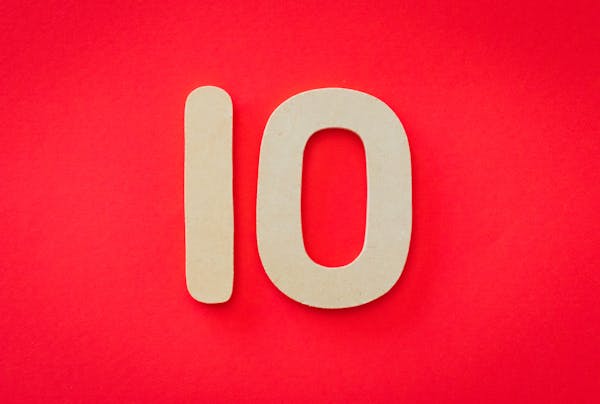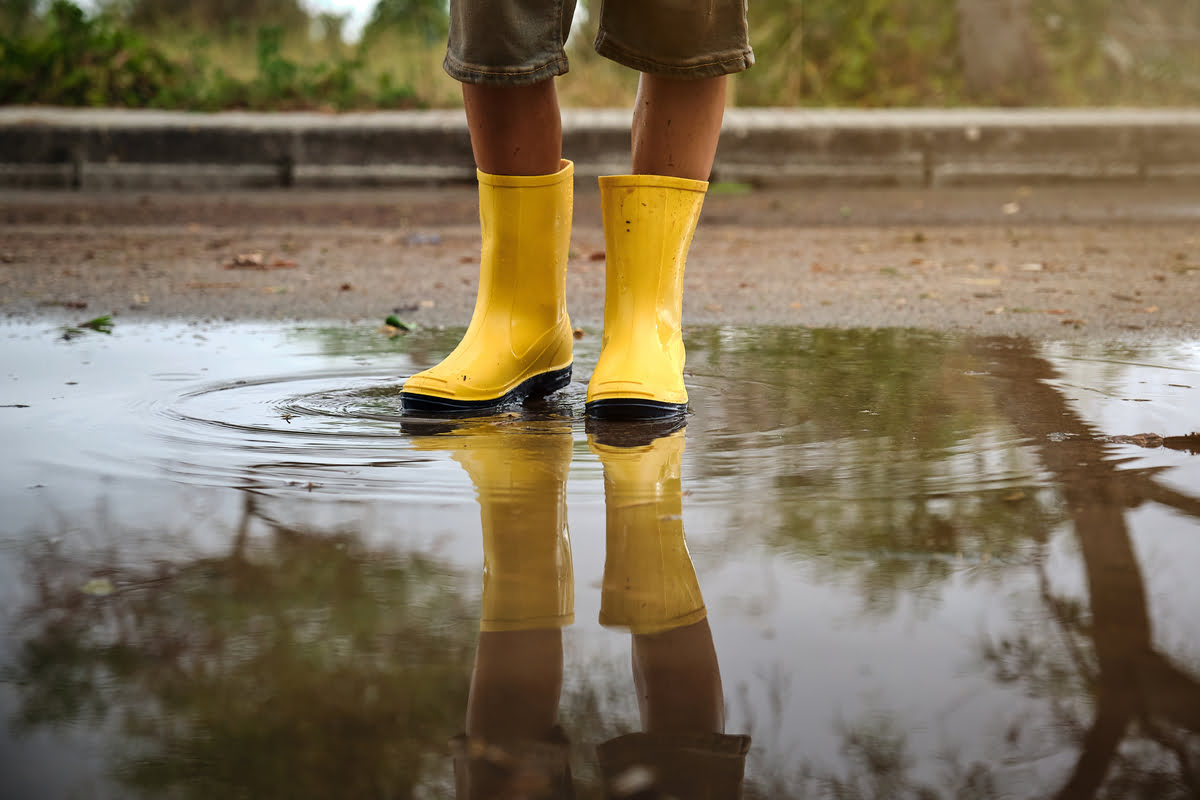One wintry day in the mid-nineties, the British-American writer and documentarian Louis Theroux boarded a small plane bound for northern Idaho. He was on his way to Almost Heaven, a right-wing, off-grid survivalist community founded by a former Green Beret, James Gordon (Bo) Gritz, who had run for President a few years earlier under the slogan “God, Guns and Gritz.” Theroux—who was in his late twenties, was tall and gangly, and wore wire-framed Harry Potter glasses—was there to film an episode of his new BBC television show, “Louis Theroux’s Weird Weekends.” In the episode, Theroux pads around snowy fields in an oversized plaid jacket, interviewing residents who had armed themselves against the federal government. He chops firewood, helps build a house, and jumps on a trampoline. In one scene, he visits the home of a man named Mike Cain and asks about his gun rack. “You know, for an American to live without a gun, it’s like you guys trying to live without tea,” Cain says.
“Really?” Theroux says. “It couldn’t be that bad, could it?”
For some twenty-five years, Theroux has been politely interrogating America’s subcultures, returning to the U.K. with irony-laden footage of interactions with professional wrestlers, white supremacists, porn actors, evangelicals, and Off Broadway actors. His programs often show him embedding with his subjects—living for weeks with members of the Westboro Baptist Church, in Kansas (in “The Most Hated Family in America”), for instance, or apprenticing as a seller on the Home Shopping Network. In an episode on the porn industry in Los Angeles, he auditioned; in another, on plastic surgery, he went under the knife.
For a certain subset of Brits, Theroux is a national treasure—a piercingly humane, slyly funny guide through the funkier passages of American culture. In the U.K., he has won three BAFTAs for his documentaries and is a familiar face on national mainstays such as “The Graham Norton Show” and “University Challenge.” Theroux’s fans tend to overlap with those of Jon Ronson, another British presenter who shares a dry sense of humor and an interest in America’s extremes. (“Sometimes I see me and Louis Theroux as conjoined twins, and that for one of us to grow stronger, the other must die!” Ronson once wrote in the Guardian.) It is possible, in the U.K., to buy a life-size cardboard cutout of Theroux; a friend of mine has named her quarantine puppy Louis, after him. In a September, 2020, episode of “The Great British Bake Off,” focussed on personal celebrity heroes, a contestant made an edible bust resembling Theroux.
When Theroux arrives in Almost Heaven, his first stop is Bo Gritz’s house. Gritz invites him inside (“Take your shoes off!”), and they sit over a U.S. map while Gritz explains why he founded the community. “Everywhere I went, I saw people afraid,” he tells Theroux. “They were paranoid about the government, they were paranoid about natural phenomenon, they were paranoid about military targeting, they were paranoid about nuclear power plants. I just was looking for the safest place for people to live.” Using a black marker, Gritz draws the disasters in each state—hurricanes in Florida, riots in Los Angeles—until the whole map is covered in scrawls. “It doesn’t leave much,” Theroux says, concerned. Gritz draws an “X” over Almost Heaven. “This place is the safest in all of America,” he says. Then he warns Theroux that the neighbors believe that a war against the government is imminent, and that they could become violent if approached. “Can we interview them?” Theroux asks.
One of the neighbors turns out to be Cain, who sports a cowboy hat and a heavy mustache. He doesn’t shoot Theroux; instead, he invites him to stay for dinner with his family. They play Monopoly, eat tortillas and beans, and Theroux sleeps in Cain’s guest bedroom, under a poster of Keanu Reeves. By the episode’s end, you can sense a friendship developing between the two men. “I’d hate to read one day that Mike Cain has been in some incident with the federal authorities,” Theroux says. “I mean, it would really upset me. Seriously.” Cain seems almost apologetic when he explains that there’s going to be “all-out war,” “maybe before the year 2000.” “And it’s not just me saying it,” he adds. “There’s tens of thousands of Americans just like me all across this country. I’m not in any way unique. Perhaps even millions of Americans that are ready for the war. We’re ready.”
Theroux, now fifty, lives in London with his wife, the television producer Nancy Strang, and their three sons. When the pandemic hit, he cancelled a trip to the U.S. to film two new documentaries. He started keeping a diary and launched a podcast. Mostly, though, he has spent this time reflecting on his early work, much of which will become available to Americans next month on BBC Select, a new streaming service on Amazon Prime and Apple TV. (Although Theroux has spent most of his career making films about America, the majority of his fans remain outside the U.S. That could soon change.) A new show, made during lockdown, “Louis Theroux: Life on the Edge,” also premièred on the BBC, in the U.K., in September. Roving and frequently delightful, it’s a semi-retrospective organized into four broad themes that read as if they were subtitles for a book called “America”: “Beyond Belief,” “The Dark Side of Pleasure,” “Law and Disorder,” and “Family Ties.” The episodes are made up of footage from Theroux’s past shows, mixed in with commentary from the present day. Most poignantly, Theroux has returned to check in on some of his oldest subjects. These interviews, conducted via Skype or Zoom, with both parties at home, often in their slippers, provide some of the most touching and satisfying moments of the show.
In the first episode of “Life on the Edge,” Theroux calls Mike Cain. Beforehand, he reflects on the segment that they made together, in the nineties. “As I think you can tell from watching it, I grew to like him, and I felt as though he had a good heart,” Theroux says. He adds, “I was sentimental about the milieu, about the world of the cowboys, its rugged frontier life style. Maybe I was guilty of slightly romanticizing it.” On the Skype call, Theroux is wearing a gray sweater and sitting next to a mug commemorating the Queen’s Diamond Jubilee. Cain has lost his mustache; he sports a goatee and has headphones on. The two have stayed in touch over the years; Theroux once visited Cain in Las Vegas for a book project. “I appreciate you stopping by for a chat,” Cain says. They speak for a moment about Almost Heaven, which Cain eventually left, disillusioned. Then Theroux asks him what he makes of Donald Trump. “I think Trump represents what is great about being an American,” Cain says.
When Theroux was growing up, he spent summers with his American relatives. His father is the American novelist and travel writer Paul Theroux, and Louis holds dual citizenship. In London, Theroux attended Westminster, a private school dating back to the thirteen-hundreds. But, every summer, he and his brother, the novelist Marcel Theroux, spent six weeks on Cape Cod, the nerdy English boys among their American cousins. “I always had a sense of not being fully British,” Theroux told me recently. “My dad instilled in me and my brother a feeling that ‘you are, at least, half American.’ ” He was dazzled by the cartoons on Saturday morning, the variety of breakfast cereals available, and odd, quasi-medical expressions in the American lexicon, such as “hyper” and “panic attack.” “I never felt as though American culture was my native culture,” he said. “It seemed, in certain respects, pretty weird.”
Theroux studied modern history at Oxford and, after graduation, moved to America. He crashed on his brother’s futon, in Boston, for a few weeks, and worked as a glassblower’s assistant. “I used to hold his punty rod, which sounds vaguely obscene,” he said. Eventually, he got an internship at the San Jose Metro. He thought the city might be on the coast, but, when he arrived on a Greyhound, he found it to be a place “more or less bereft of people, where everyone was congregated in malls.” He loved it. He covered local council meetings, zoning changes, and offbeat stories about psychics and sex shops. “I think if you’re an overeducated British person with a highly developed sense of self-consciousness, there’s something about being immersed in a world that was so different,” he said. It seemed “to involve so little judgment.” He and his colleagues, a group of aging hippies and punks, bonded over feeling like an “embattled little community of the elect,” he said. “A bit like being in the Westboro Baptist Church, I suppose.”
In 1994, he became a correspondent on Michael Moore’s irreverent documentary show “TV Nation,” and learned that Americans, hearing his accent, often gave him the benefit of the doubt. “Many of the stereotypes about British people, as they’re perceived in America, are positive,” he told me. “Like, Oh, he’ll be kind of classy, and thoughtful, and a gentleman—none of which are necessarily the case, it goes without saying. But it can be very convenient as a reporter.” He found Americans receptive to being interviewed on television, and their stories fascinating. “There was something about the extravagance and the unself-consciousness of American cultural self-expression, and just the weirdness of it—for want of a better term—that made me feel kind of invisible and, therefore, free,” he told me. Soon after, he was given his own show, “Louis Theroux’s Weird Weekends,” on the BBC.
When critics describe the arc of Theroux’s career, they usually say that he cut his teeth on zany, offbeat stories before turning to more important topics. In recent years, he has made nuanced and heartbreaking pieces on dementia care and the opioid crisis. But his early work, while funny, also carries an undercurrent of seriousness. You get the feeling, even while watching him work out with wrestlers until he pukes, that there’s something at stake. “They all, at the heart of them, have a fairly specific kind of moral or psychological conundrum,” Theroux told me. A visit to a subculture becomes an exercise in empathy.
His questions can get a little cheeky. He pretends confusion when a woman preparing to host a swingers’ party won’t invite the grocery-store clerk ringing her up. When he visits a Miami jail, he asks inmates in a cell in which someone has recently been stabbed who did it (they decline to answer). Occasionally, these scenes can grate. They carry with them a faux naïveté that can come off as insincere or just plain rude. “Disingenuousness has always been a notable part of the Theroux brand,” Lucy Mangan, a TV critic, wrote recently, in the Guardian.
Gray areas suit Theroux best. “He’s better when he’s dealing with moral ambiguity than with moral certainty,” Ronson told me. He brought up a moment from one of Theroux’s films about the Westboro Baptist Church in which someone throws a drink at a child holding up an offensive sign. It hits him in the head, and his mother, one of the leaders of the church, is understandably upset. “Who’s committing the crime in that moment?” Ronson asked. “It’s not the Westboro Baptist Church, as offensive as they are. It’s the person on our side of the fence, morally.” He added, “I’ve thought a lot about that scene.”
Living abroad as an American drives home certain truths. One that endures: America is a weird place. When I first moved to London, I bristled when British friends mentioned Theroux. They would bring up segments about U.F.O. believers or overmedicated children, the implication being, Can you believe Americans do this? In his memoir from last year, “Gotta Get Theroux This,” Theroux outlined his own reservations about making “Weird Weekends.” He worried that he’d end up creating “light-hearted documentaries that pandered to a superior view of America as a benighted haven of misfits and morons,” he wrote, “with the further paradox that I was myself half-American and something of a misfit, with occasional moronic tendencies.” In making “Weird Weekends,” he hired several Americans, and tried to avoid broad generalizations. Still, he acknowledges that, for British audiences, “it probably confirmed various prejudices they might have about, ‘Oh, those Americans are a bunch of weirdos.’ ”
But, watching “Life on the Edge,” I was struck by just how many of Theroux’s early subjects, both serious and lighthearted, remain central to our national debate. In the third episode, “Law and Disorder,” we see footage from a 2008 special in which Theroux shadowed members of Philadelphia’s police force and heard from residents about police brutality. In another special, he spent two weeks at the San Quentin State Prison, delving into America’s history of mass incarceration. In 2011, in one about people who live with wild animals (“America’s Most Dangerous Pets”), he spent just over a week in Oklahoma with Joe Exotic, long before he was a household name. (“Now, why have you put a tiger in with a bear?” he asks at one point.)






